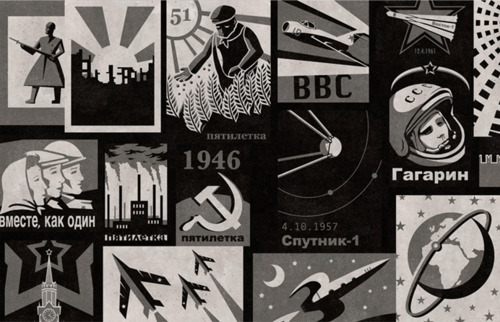'twice blest'
The Quality Of Mercy
by Barry UnsworthI seem to be losing my taste for historical fiction. I loved reading Unsworth's weighty Booker winner Sacred Hunger, got gleefully lost in its descriptions of seafaring, its debates around the issue of slavery and its panoply of characters. But I'll be upfront and say that with each book I read I find that the research and detail of historical fiction feels like the decoration of a historical building. It may be interesting, it may be pretty but it doesn't really mean anything to me beyond that; I want to get to the meat. I'm saying all of this now because it explains why I wasn't able to really click with this book which is more than just fine, a worthy sequel to Sacred Hunger, but hard for me to get truly excited about.
For those who need reminding (like I did) or those who haven't read it, Sacred Hunger followed two cousins; Erasmus Kemp, son of a wealthy merchant and Matthew Paris, physician. The two had a long-standing enmity with vastly different world views which came into conflict after the disastrous voyage of Kemp's father's ship, The Liverpool Merchant, which ended with disease, death and mutiny amongst the crew and the cargo of slaves. Presumed lost at sea in a storm, Kemp travelled to the coast of Florida on hearing that it had been landed there, crew and slaves living together in a colony, and utilised infantry soldiers to recapture the crew. The sequel picks up back in England with the crew in jail awaiting trial, Kemp preparing for a hearing about the insurance settlement for the slaves tossed overboard prior to the mutiny and develops a few more strands to its story. First of these is Sullivan, an Irish fiddler, who rather fortuitously manages to walk right out of prison and sets off for the village of Thorpe in Durham, to explain to the family of his dead shipmate, Billy Blair, how he met his end. We will also meet Billy's sister Nan and her husband who continues to work the coal fields. Back in London Frederick Ashton, an anti-slavery campaigner, attempts to frustrate Kemp's claims to compensation in the courts and also to bring the issue to wider notice. His sister Jane however finds herself powerfully attracted to this man who seems to represent the antithesis of her own views.
Having recaptured his crew and placed himself perfectly to avenge the shame and suicide of his father we might expect to find Kemp triumphant.
Why then this haunting sense of loss and waste? But it was not new, it had always been there, a companion continually neglected and forgotten, continually demanding to be recognised anew. All the successes of his life were consumed to ash in the fire of achieving, in the realisation of his will and intention.
Kemp is never still, always looking to the next scheme and stratagem, one of which involves the lease on coalfields in the east of Durham (I'll let you guess where exactly), an opportunity that could mean a whole new income for his rapidly growing riches. But his mind too is never at rest, he is constantly wrestling with arguments around his pursuit of wealth at any cost, human or otherwise, battling with 'the sensation, frequent with him since his return, of arguing with himself, or with some shadowy person not quite himself, someone whom he urgently needed to convince, but who constantly framed arguments more weighty than his own.' Add to this the internal turmoil that comes after his meeting Jane Ashton and you have a potent combination that even offers up moments of comedy. But I'll come back to that later.
The day to day living of those in the lower classes is what provided more interest than the lofty arguments of those above them. Sullivan's journey to the north of England is a mixture of thievery, luck and the kindness of others and it is this last element that feeds into the novel's main theme of mercy. Sullivan comes to realise how quickly money stolen can pass through his hands, its real worth never felt as it was taken in the first place rather than owned. And he quite simply couldn't complete his journey without the mercy of others, something that combines rather nicely with the thought that his mission itself is one of mercy. His arrival at Thorpe also provides a useful image in the development of Sacred Hunger's examination of slavery.
As he descended the long slope and drew nearer to the village, he heard the hiss and clank that came from the shafts of the mine, and saw here and there, approaching the village from the fields beyond, figures walking slowly, as if summoned by these noises. He saw with something of a shock that their faces were black...
For what is the real difference between the slaves stolen from the coast of Africa and the life of labour undertaken by men like Nan's husband, James Bordon, whose elderly father still works beneath the ground and whose 7 year-old son is about to make his first descent down into the depths; three generations whose lives are tied to the creation of wealth for men like Kemp. One woman who hopes to be able to change this is Jane Ashton who has great hopes for a fairer society. In Kemp she sees a man 'standing at the brink, braced for the plunge' a man with the power to make the difference she longs for and that possibly 'Guided by her, he would come to see what was due, what was just.'
Where does comedy come from in a scenario like that? Well, in a rather hilarious mixing of research and character we enter the mind of Kemp and sense first hand the heat that comes from 'the fire of achieving' as he imagines Jane undressing by moonlight, too maidenly to do so completely, retaining...
'...an undergarment of some diaphonous material, thin enough for her to feel his touch on her body as she lay beside him, touch of a man's hands, never felt before. . .All was propitious for invention and expansion, every factor, every indication. The fall in the rate of interest, coinciding as it did with a growth in the markets at home and abroad, had provided strong incentive. The return of peace in 1763 had eased the pressure on the price of consols and brought with it a rate of public borrowing which was unlikely to exceed three per cent. . .The quickened breath of her excitement a she turned towards him, as he rose above her. . .'
from The Merchant of Venice by William ShakespeareRead more...
PORTIA:
The quality of mercy is not strain'd,
It droppeth as the gentle rain from heaven
Upon the place beneath: it is twice blest;
It blesseth him that gives and him that takes:
'Tis mightiest in the mightiest: it becomes
The throned monarch better than his crown;
His sceptre shows the force of temporal power,
The attribute to awe and majesty,
Wherein doth sit the dread and fear of kings;
But mercy is above this sceptred sway;
It is enthroned in the hearts of kings,
It is an attribute to God himself;
And earthly power doth then show likest God's
When mercy seasons justice. Therefore, Jew,
Though justice be thy plea, consider this,
That, in the course of justice, none of us
Should see salvation: we do pray for mercy;
And that same prayer doth teach us all to render
The deeds of mercy. I have spoke thus much
To mitigate the justice of thy plea;
Which if thou follow, this strict court of Venice
Must needs give sentence 'gainst the merchant there.




















